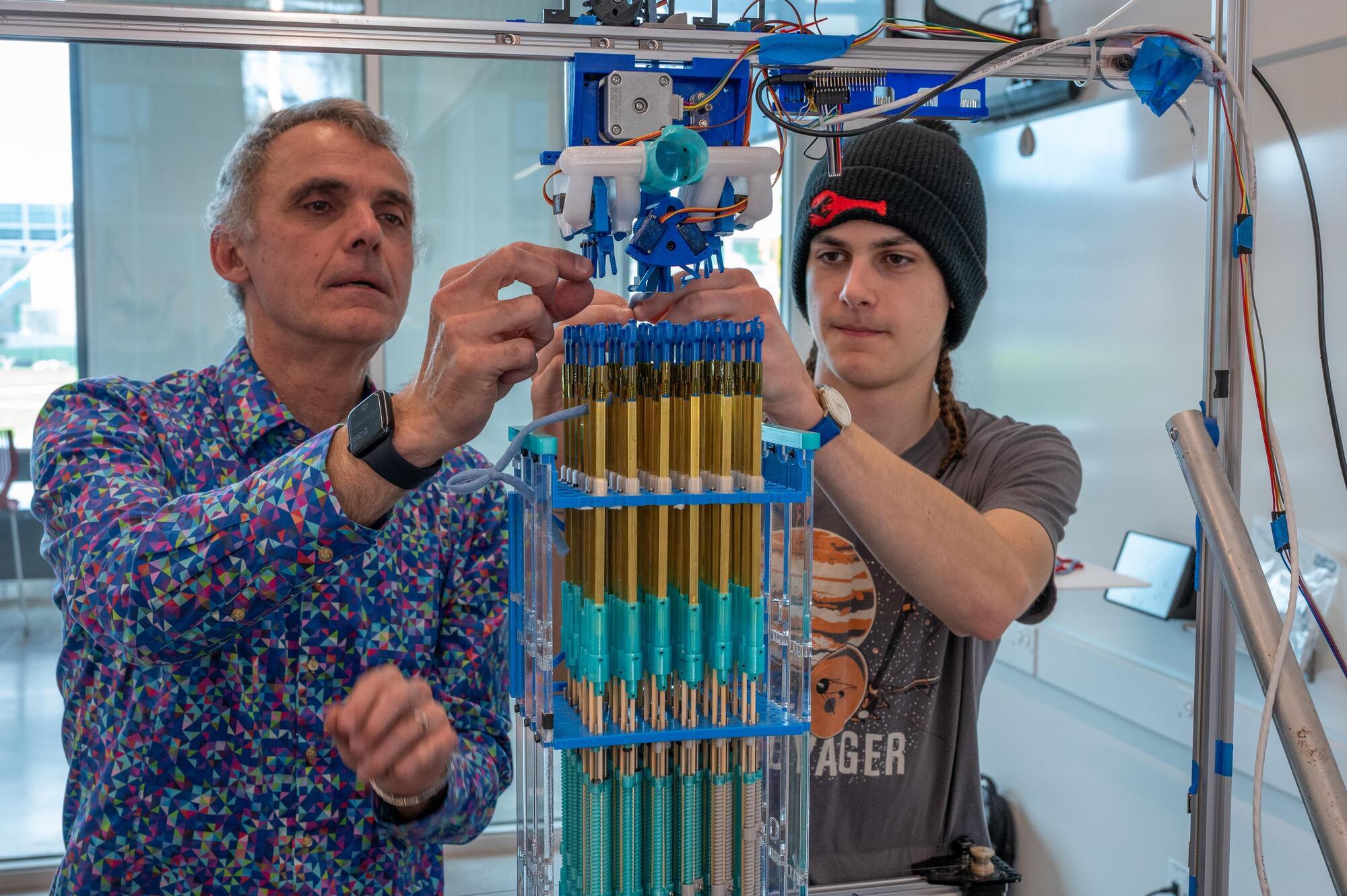Microscopic fibers in tissue are critical for our understanding of disease, but they have been difficult to study. Researchers at Stanford Medicine have come up with an easy way to visualize them.





If you find 3D printers to be just a little too coldly futuristic, this contraption might be more to your liking. Scientists from Cornell University have created a machine that knits solid 3D objects out of nice old-timey conventional yarn.
The prototype device is made mainly of 3D-printed components, and incorporates a bed of knitting needles arranged in a 6 × 6 block. A motorized knitting head dispenses yarn to any of those needles in sequence, as determined by a program on a computer that’s controlling it.
Each of the needles in turn consists of a 3D-printed symmetrical double hook connected to a brass support tube. Because the front and rear sections of the hook move independently, it’s possible for the device to either knit or purl, depending on which section of the hook picks up the first loop of yarn.

Scientists at UBC Okanagan have revealed how plants create mitraphylline, a rare natural substance that shows potential for fighting cancer.
Mitraphylline is part of a small family of plant molecules known as spirooxindole alkaloids. These compounds are distinguished by their complex “twisted” ring structures and are recognized for powerful biological effects, including anti-tumor and anti-inflammatory activity.
Until recently, researchers did not know the precise molecular process plants use to form spirooxindoles. That mystery began to unravel in 2023 when Dr. Thu-Thuy Dang’s team in the Irving K. Barber Faculty of Science identified the first plant enzyme capable of twisting a molecule into the distinctive spiro shape.

Scientists have shown that brain connectivity patterns can predict mental functions across the entire brain. Each region has a unique “connectivity fingerprint” tied to its role in cognition, from language to memory. The strongest links were found in higher-level thinking skills that take years to develop. This work lays the groundwork for comparing healthy and disordered brains.




What is it that makes a super recognizer —someone with extraordinary face recognition abilities—better at remembering faces than the rest of us?
According to new research carried out by cognitive scientists at UNSW Sydney, it’s not how much of a face they can take in—it comes down to the quality of the information their eyes focus on.
“Super-recognizers don’t just look harder, they look smarter. They choose the most useful parts of a face to take in,” says Dr. James Dunn, lead author on the research that was published in the journal Proceedings of the Royal Society B: Biological Sciences.